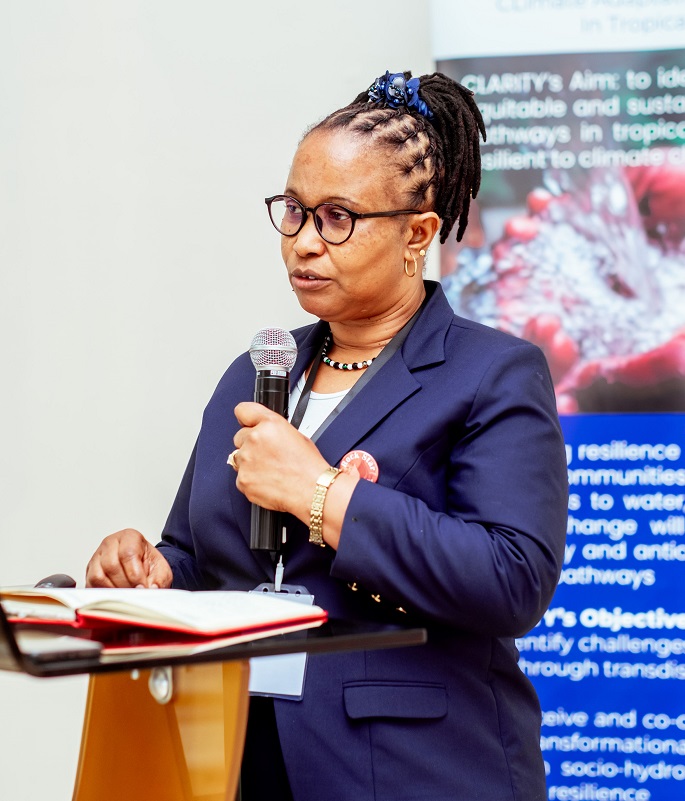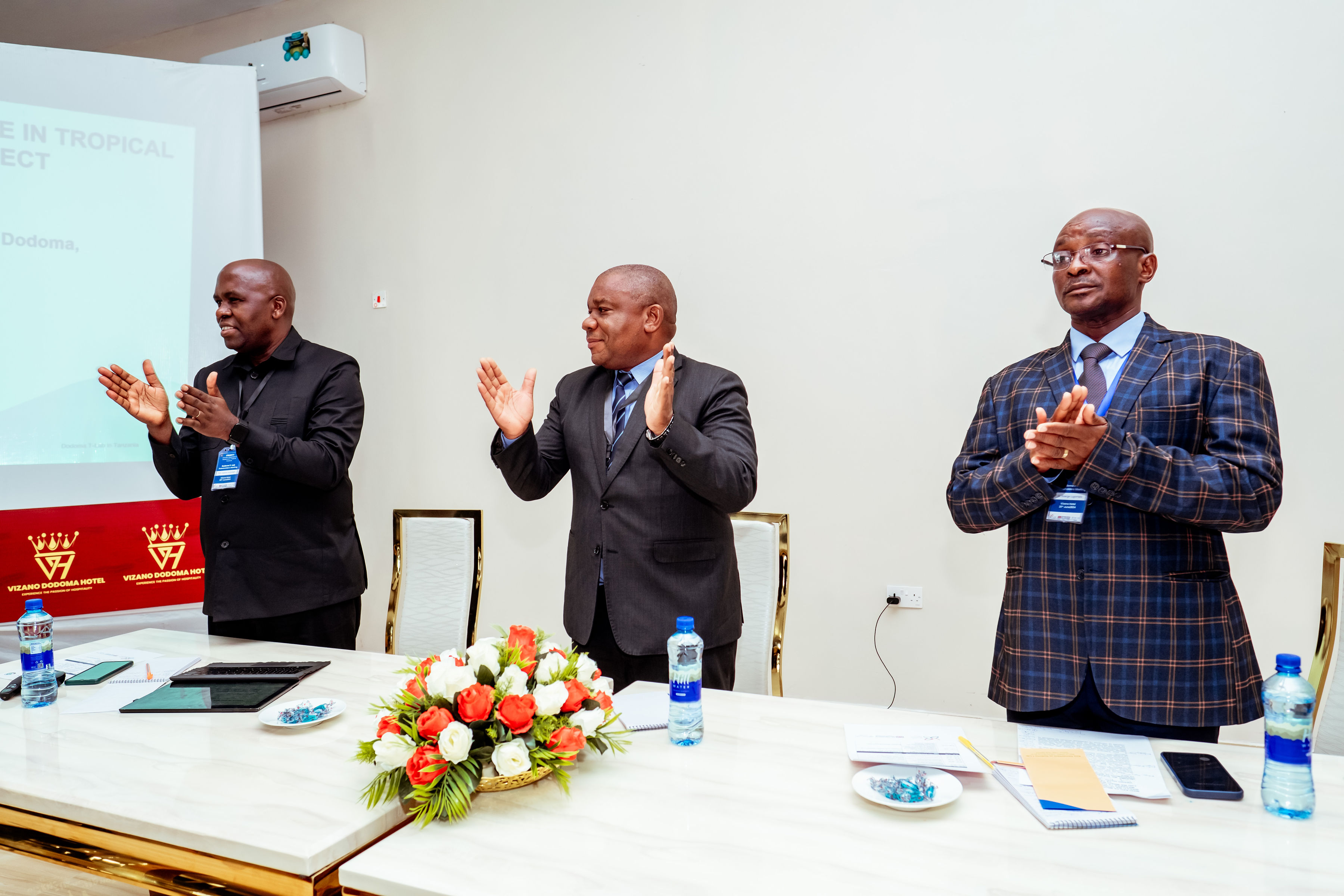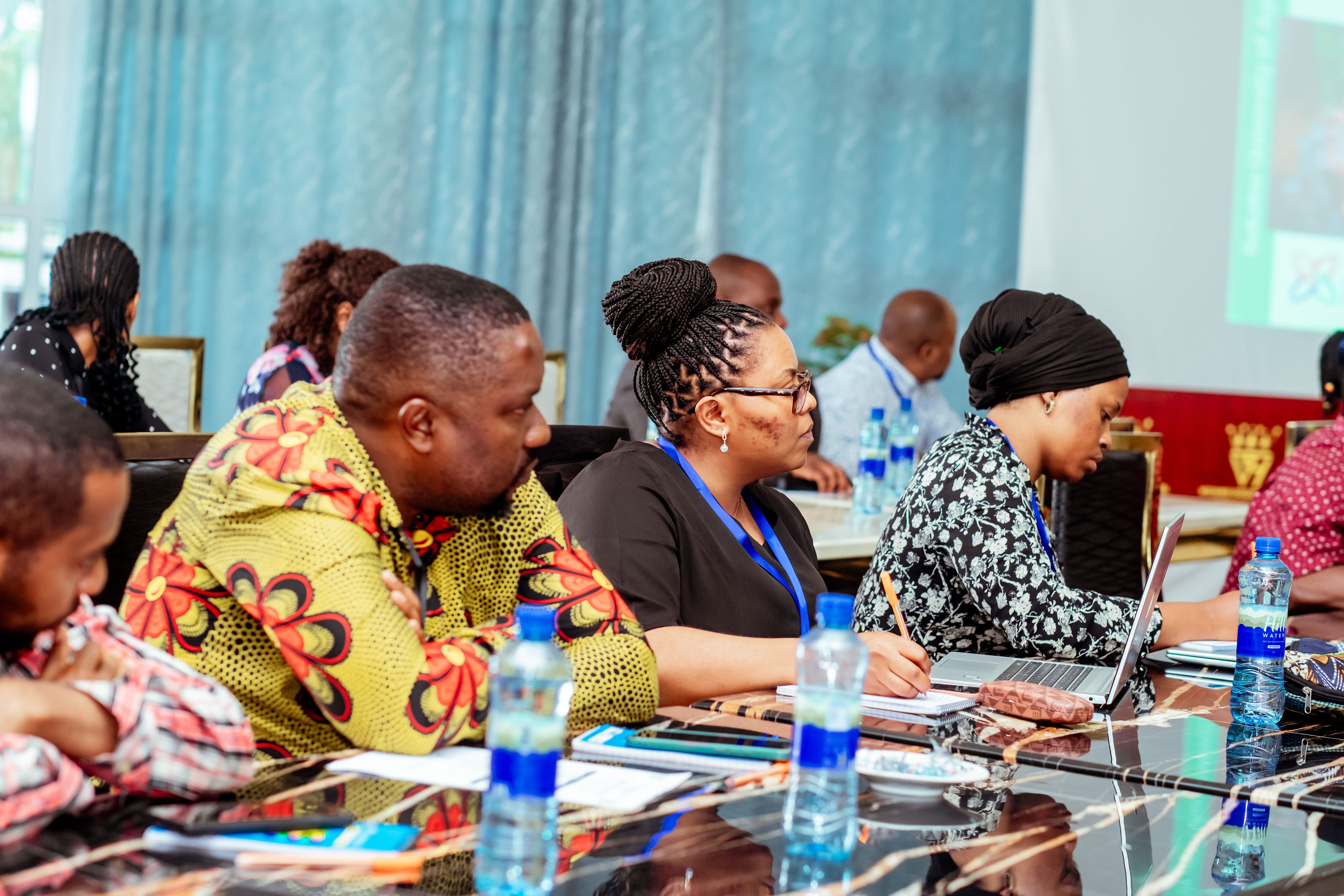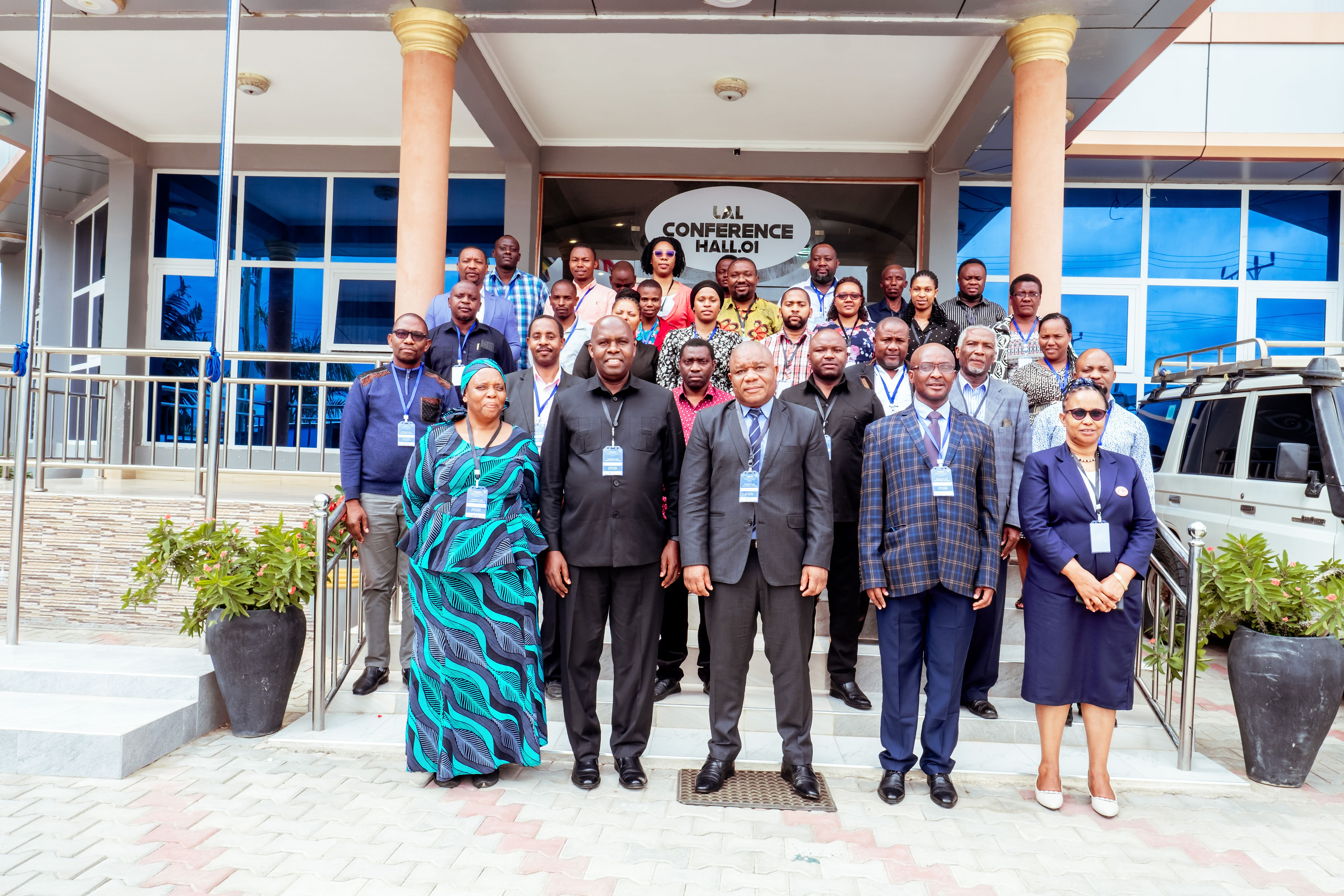It is described that the T-Lab for the Climate Adaptation and Resilience in Tropical drylands (CLARITY) project which involves various stakeholders who are looking for solutions to the challenge of climate change and its effects on the availability of groundwater can help solve the challenge of water availability in Dodoma City.

The Deputy Vice-Chancellor of Sokoine University of Agriculture (SUA) Academics, Research and Consultancy, Prof. Maulid Mwatawala
This was explained by the Deputy Vice-Chancellor of Sokoine University of Agriculture (SUA) Academics, Research and Consultancy, Prof. Maulid Mwatawala while speaking to journalists at the T-Lab Workshop held in Dodoma City.
Prof. Mwatawala said the challenge of access to water in Dodoma City is a long-term one following that the city is in a dryland area. This is why the CLARITY project saw the importance of conducting a study to examine groundwater availability, how to maintain it, distribute water with access that will be equal for all genders, all groups, and be sustainable and reliable.
"The sitting of this group is to see what will be the contribution of the groundwater available in solving the challenge of access to water in Dodoma involving other sources, and now these stakeholders have met to provide a joint solution. One of the issues we are looking at now so that we can move forward is that we must take care of the existing water sources and the stakeholders’ discussion is about planting trees and taking care of them because if planted trees are not taken care of, they get lost", said Prof. Mwatawala.
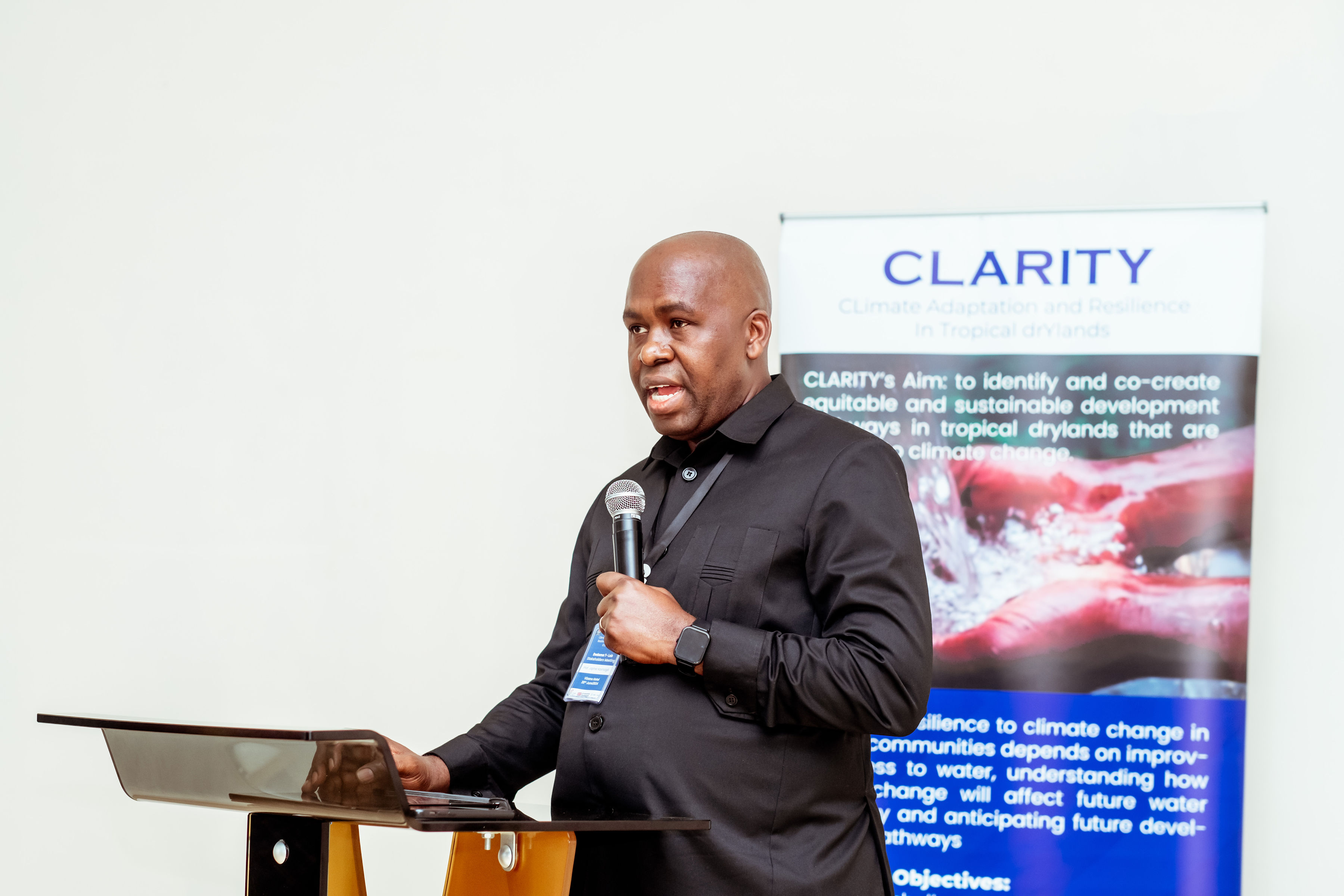
On his part, the Head of the Project and the Director of the Directorate of Postgraduate Studies, Research, Technology Transfer and Consultancy at SUA, Prof. Japhet Kashaigili has said that the CLARITY T-Lab in Dodoma City is led by SUA while noting that CLARITY aims to increase the equality, sustainability and resilience of water pathways to climate change in dry tropical areas and to incorporate the solutions in policy processes and community implementation.
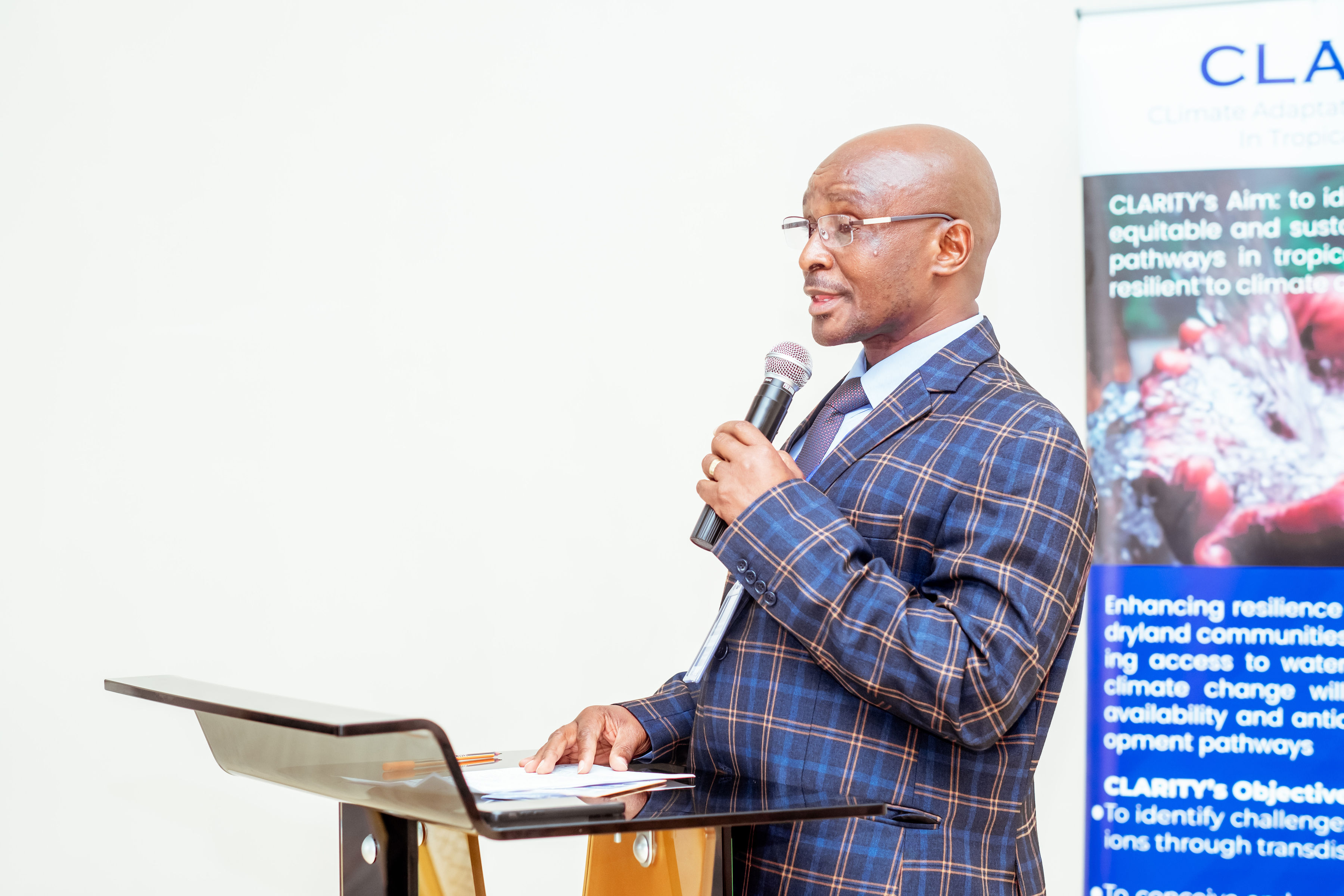
Coming to groundwater Expert from Wami Ruvu Water Basin, Mr Ezra Mwakabumbe has said that in response to the challenges of climate change, they have planted 17,600 trees this year and influenced various people to continue planting trees and conserve water sources.
"We have managed to form water user communities which have been of great help to us in providing information on people who invade water sources. We have also entered into an agreement with JKT Makutupora to regularly patrol the water reservoir to control livestock and human activities from being carried out within the water reservoir", said the expert from Wami Ruvu Water Basin.
The CLARITY project is three years and six months started in 2023. The project is funded by the International Development Research Center (IDRC Canada); and the Foreign Office, Commonwealth and Development (FCDO, UK) under the Climate Adaptation and Resilience (CLARE) programme.
This was explained by the Deputy Vice-Chancellor of Sokoine University of Agriculture (SUA) Academics, Research and Consultancy, Prof. Maulid Mwatawala while speaking to journalists at the T-Lab Workshop held in Dodoma City.
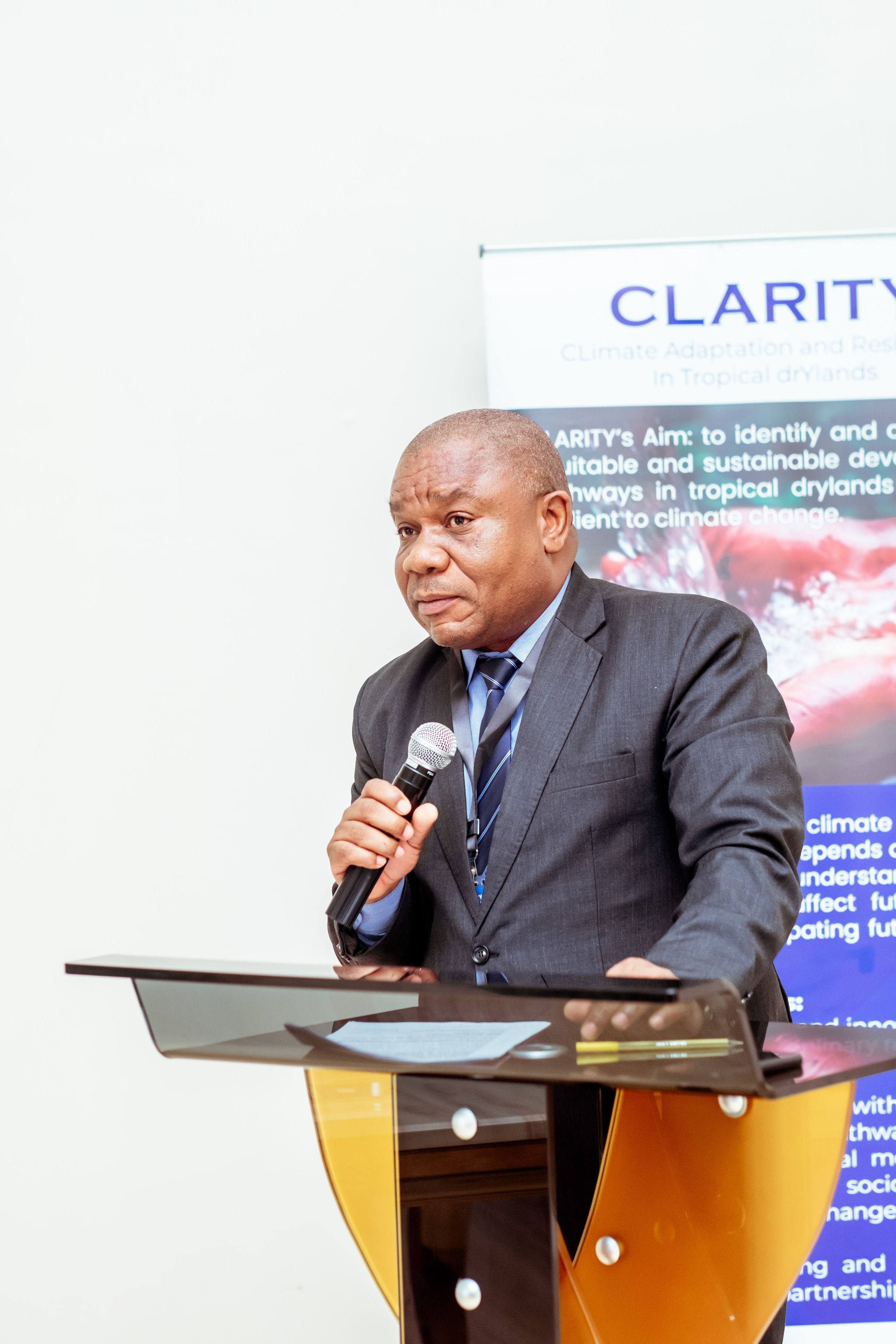
Prof. Mwatawala said the challenge of access to water in Dodoma City is a long-term one following that the city is in a dryland area. This is why the CLARITY project saw the importance of conducting a study to examine groundwater availability, how to maintain it, distribute water with access that will be equal for all genders, all groups, and be sustainable and reliable.
